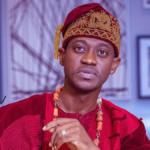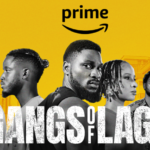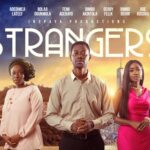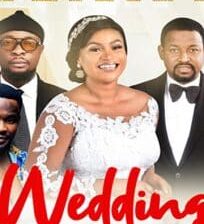When I was first assigned to review ‘Wedding in Nigeria’ by my team at TFC, I was not filled with the usual energy that I will usually brim with, when I know I am down to watch a great movie. The promotion of the film was not as great as I had expected. I also found the title too generic and lackluster. But I was psyched to see Segun Arinze, Patience Ozokwor, and MC Lively on the cast list. So, I kept my expectations high.
Wedding in Nigeria is a movie seeking to portray the demerits of perceptions and stereotypes, especially in a Nigerian society where everything is judged as perceived. An average Nigerian is influenced in believing in a stereotype about an individual from a different tribe. It is said that every Igbo kinsman is obsessed with money, Yoruba folks are believed to be great lovers of parties and peppery food (and to equally dish out pepper in their amorous relationships) whilst the Hausa is portrayed as reeking of filth, ignorance, and hubris.
- Advertisement -
The movie sets out to portray how these stereotypes reinforce certain narratives that are out of touch with contemporary Nigerian society. So, Wedding in Nigeria is a thematic exploration of realities and beliefs with an impressive plot. Two lovers, in their quest to get married, are restrained by the stereotypical hindrances of being from two different Nigerian tribes. They then have to contend with the difficulties of getting their families to be on good terms with each other for the marriage to proceed. The movie touches on the negativities of tribalism, institutional corruption, police harassment, and age-long albeit unfounded stereotypes.
However, in attempting to discuss its array of lofty themes, the film struggles to pass on its essence and deliver its message. Filled with comic inferences, its message is watered down by terrible acting and unimpressive cinematography. Its ridiculousness is gripping and exceptional, tainting a run of enviable and commendable filmmaking that has been prevalent in Nollywood recently. The expected earnestness of the movie’s plot is exchanged for a bevy of mistakes, prolonged scenes, bad shots, annoying sound infusions and repellent portrayal of the characters.

The movie’s misses hits the viewers on the first watch, dissuading the audience from grasping its core messages. A few examples would be prolonged. The church service scene is a half of famer. It makes you wonder if the producers of the film take the realities of a proper Nigerian church wedding into consideration in the development of the story. Meanwhile, the depiction of police officers as the funnels of corruption, while relatable, was badly executed. In any case, MC Lively’s character is punctured with too much hilariousness, reinforcing a silly narrative that Nigerian comic acts should be made redundant in comic roles they ought to perform well (after all, they are comedians).
Nonetheless, the movie deserves a few claps in attempting to create a visual critique on the faults of stereotypes and perceptions. For that, I am impressed by the impact Wedding in Nigeria seeks to set and the conversations it hopes to ignite. The movie would have been excellent if it had been released before 2015; just before the age of New Nollywood. But the abrasive attempts of the movie in inspiring an essential discussion on tribalism, stereotypes and the need for the revival of collective unity and spirit deserves commendation.
Wedding in Nigeria has a commendable premise hinging on the politics of stereotypes and tribalism, seeking to pass an important message and portray the demerits of misunderstood perspectives. The movie would have made its mark, but the over-reliance on crass humour and punctuations of an appalling acting hinders its essence. Still, it is an important visual project with a crucial message which the Nigerian society ought to imbibe.
- Advertisement -
Wedding in Nigeria is showing in a cinema near you.
Directed By: Godwin Obiora Onwuneme
Lead Cast: Zubby Micheal, Segun Arinze, Priscilla Okpala, Patience Ozokwor, Sani Danja, Don Brymo Uchegbu











